Cancer
When you first hear those words, there is an overwhelming sinking feeling. It's visceral, like you are physically falling backwards off a high cliff. A rush of adrenaline (or other chemical) surges across your head and the only thing I can compare it to is the overwhelming panic you can get if you think something horrible has happened to one of your children.
It's cancer.
Being told you have cancer is an immediate change in everything in your life. Suddenly, you are filled with a range of emotions that are mostly unpleasant: dread, loneliness, fear, anger, sadness, regret. You wonder if you have wasted your life; whether you will get through this to see the future you've been planning or working towards. All you want is to be surrounded by family and friends—and the hope that you can beat the odds and beat the cancer.
I have always been the kind of person who sees the world as a glass half full—always optimistic, strong, driven. Never has anything knocked away my optimism like cancer. It's like a thief that steals your home and family and future—a criminal that has no care of you or repercussions, no fear of justice, no morality… and not even a purpose. It comes in and sits in your chair, eats your food, smiles seductively at your wife, then stares at you with mocking, cold contempt. All you can do is hate it; and hope that fate will choose you over it.
This is my struggle with cancer and how I found my way back from desperation, back into the light of hope and love.
The Year of the Roller Coaster
2019 proved to be the year of the roller coaster for me. I've never had such a tumultuous sequence of ups and downs. I rolled into 2019 having dealt with a range of illnesses, including a stint put into my ureter because of a major blockage that had likely been caused by excessive kidney stones (which may have been a symptom of the underlying but undiagnosed cancer). At the time, the pain of that episode overshadowed some other symptoms I had like nausea and sweating at night… things I started to suspect as an ulcer. I scheduled an appointment with a gastroenterologist and changed my eating habits as I waited for that appointment.
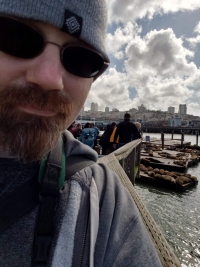 While waiting to see the gastroenterologist, I was honored on the Autodesk website in a featured article. Autodesk creates a myriad of software used at the top of many creative industries. It also makes 3ds Max, the application that has consumed many years of my life. This honor was followed by another high when Autodesk invited me to be the keynote speaker on 3ds Max at the annual Game Developer Conference (GDC) in San Francisco. That was a huge high for me.
While waiting to see the gastroenterologist, I was honored on the Autodesk website in a featured article. Autodesk creates a myriad of software used at the top of many creative industries. It also makes 3ds Max, the application that has consumed many years of my life. This honor was followed by another high when Autodesk invited me to be the keynote speaker on 3ds Max at the annual Game Developer Conference (GDC) in San Francisco. That was a huge high for me.
Soon after returning from San Francisco, one of the lowest periods of my life ensued. My cousin Chris, who had become more of a brother than cousin over the years, was hospitalized. He was diagnosed with esophageal cancer that had already spread to many parts of his body. Over the next few weeks I tried to be with him every day. He died only weeks after learning of the cancer. It was a heavy blow for me and all who knew him. I didn't know that his tragedy would foreshadow the challenges I was soon to face.
After Chris died, I turned back to my work and tried to look to the future. Again, I was honored by Autodesk, this time with a job offer in Montreal; my wife and I started planning for a potential new life in another country.
During this period, I lost a lot of weight. My nausea increased, and I started having stomach pains after eating. I thought it was the stress of Chris and work, but it was something more serious. Within a couple weeks of Chris' passing, I came down with extreme shakes and fevers. My wife Jenny took me to the Emergency Room, where I was scoped and diagnosed with severe anemia and a bleeding ulcer. The word “cancer” was mentioned then, but when the ulcer biopsy came back negative, all seemed to be on the up-and-up.
Over the next two months I took medications to heal the ulcer, but the symptoms continued. So did the weight loss. When I went back in for a progress report, the inflammation and mass of the ulcer had expanded to the point of almost completely sealing off my duodenum—which had been the cause of nausea and vomiting. Still, the biopsy was negative for cancer, and I was told that I'd have a surgery to remove the ulcer.
Before the proposed surgery, they needed to bring my weight up and get my body stronger. So I was admitted to the hospital again. Another scope, another scan and another biopsy. This time the biopsy was deeper into the ulcer tissue. This time the results were not just a simple ulcer, and my nemesis was uncloaked: aggressive lymphoma. Surgery was taken off the table and replaced with treatment for cancer. Now the wall of despair mentioned above fell upon me.
I could go into all the gory details of transitioning to the treatment side, but I won't. The main thing was that it was overwhelming on every level—physical, mental and emotional. Initially, I was very despondent. An hour before I was to start chemotherapy for the first time, I got news from Chip Weatherman at Autodesk that they had decided to hire me for an important management role on the 3ds Max team. I felt like the whole world had been pulled out from under me as I had to tell him of my circumstances and pass up that opportunity at that time.
My wife was with me constantly. Several friends and family came to give me support. And the nurses and PSAs kept coming in with smiles. I had all the support in the world, but still I felt all alone. There I was in a hospital room with several tubes going into my body. I didn't feel like I was me anymore. I felt like everything was over. Outwardly I tried to keep a smile, but inside was very dark. Was I going to get through this? Would I get to meet all my grandchildren who are not here yet?
Get Busy Living
There is a moment in the movie The Shawshank Redemption where Andy finally comes to grips with the unfairness of his situation. He sees that there are only two ways to proceed. “Get busy living, or get busy dying.” I hadn't seen that movie in decades, but the line came back to me while I was trying to fall asleep in a hospital bed.
It echoed through my mind and reminded me to stop feeling sorry for myself. I was still here. I still had choices. So I made the decision to do all that I can do—stay positive and make the best of what I have. My oncologist had told me that staying positive is, perhaps, one of the best things you can do to fight cancer; I took hope in that and chose to find myself again.
Cancer had taken away my father and my cousin. Cancer might still take away my life. But I realized that I could still keep it from taking away all that I am. I can still make positive impacts on the lives of those around me. This is what I focused on.
Over the next several months, which saw many extended hospital stays, I made it my daily mission to try to bring a little smile to the nurses and PSAs and anyone else I encountered. This had me out walking the hospital hallways (dragging around chemotherapy bags and sodium chloride drips) to make my rounds getting my steps in and asking everyone if they are having fun yet. When I smiled, I always got a warm smile in return. Soon the nurses were all teasing me as much as I teased them. I grew to really love all of them for their dedication and kindness.
While in the hospital, I continued to do work. There are several features I added into Wall Worm while in the hospital. I even made some props for Black Mesa while in a hospital bed. Although the chemotherapy made me tired, I tried to stay active with creative tasks like drawing cartoons and mazes. It wasn't always easy because the chemotherapy was a constant injection for several days in a row during each hospital stay; fighting fatigue was a constant challenge.
Sometimes I'd get a reprieve from the hospital food when Mike and Julie Schirtzinger would show up with dishes from my favorite restaurants or my son or wife brought me subs and other goodies. When home, between treatments in the hospital, I tried to do as much work as possible and spend as much time as I could with family and friends. Brian Dale came from Tennessee to share some meals and visit the Wright Patterson Air Force Museum; Jeremy Martin came to stay with me a week from Oregon; Rich Boucher flew in from Arizona to spend some days together. We hiked Darby Park together and talked about old adventures in our lives.
The infinitely abysmal hole of despair I saw the first moment of diagnosis had been filled in with the day-to-day act of living. Instead of being consumed by possibly imminent death, I was back to living again—which is, in its own way, the constant distraction from the mortality facing every single one of us. It would have been easy to fall into that pit of despair, to give up. As I walked up and down the oncology floor, I passed many doorways and heard many heartbreaking things. I saw several bodies being taken away to the morgue and several teary families consoling each other. But giving in to hopelessness would have meant that cancer had won—that cancer really had taken away who I am. I believe that life is worth living and that hope is always worth clinging to.
Determination to not let cancer change me as a person led me to the conviction to not let cancer win in any way. I have to see the grandchildren yet to come! So there was no choice but to beat cancer.
Doctors and Nurses
My first nurse on the oncology floor was Allison. She was young, cheery and lively. After having endured several unpleasant procedures and operations I was both scared and emotional; her up-beat smile was an antidote I sorely needed for my faltering optimism. I started looking forward to every time she'd come check in on me, though I felt bad that she had to put so much biohazard gear on just to change the chemo bag.
Then came Alice. At first, I couldn't tell if a couple of my jokes annoyed her. But quickly enough, she started sharing with me little bits of her life or recommending movies. I grew fond of her very quickly.
Zoya, a Russian immigrant, soon entered my little world. Her strong accent gave away her background immediately, and it wasn't long before I was enlisting her in teaching me a little bit of Russian. Just seeing her in the hall warmed me every time.
There was Faith who initially came across as all work-and-no-play. But before long I saw through it and picked up on her avidly dry sense of humor. She carved a wooden head for me, and I almost broke into tears.
The pool of nurses and PSAs I knew kept growing over the months. I never wanted to go into the hospital for days at a time, but I did come to look forward to seeing them when I had to come in. I realized that I had never given nurses as much honor and respect as they deserved. Their jobs aren't easy. They work long hours. In the case of the oncology floor, they are working with patients who are often terminally ill and in dire straits; I know the emotional burden is great.
Just being around people who are rooting for you, encouraging you, smiling at you—that is invaluable when you are very ill. It can help lift you when you doubt yourself. Maybe it was science and technology that saved my life—but it was certainly the affectionate care from the nurses that helped preserve my soul. I love them all and know that I can never give back even a portion of what they gave to me.
Thank you, Dr. Emily Saul, for your knowledge, time and hope. Thank you Dr. Glatz for your professionalism and skill—but even more for your empathy. Thank you, Riverside Methodist Hospital and staff, for helping save my life.
Looking Forward
Cancer is a scary thing. From the symptoms to the diagnosis and treatment, it changes your life in dramatic ways. For so many people, cancer is a tragedy that has no silver lining. There is no way to sugar coat the grim realities of a disease like cancer.
Treatment can be unpleasant. The drugs can make your hair fall out and your face swell fat—and those are just the mild effects. Some procedures like bone biopsies, lumbar punctures and PICC line insertions can be frightening. And doubt can always bring you down.
But there are always reasons to fight. It's on each person to find those reasons; for me, it was simply to spend more time with my family and accomplish goals I haven't reached yet. There are no guarantees, and your best effort may not even be enough. But going down fighting is always better than just giving up. Even days before he died, my cousin had said, “Never give up.” It's something we both always believed in.
Thanks to the support of family, friends, doctors and nurses, I was able to get through all the treatments without giving up. Whether it was my wife staying the night with me in the hospital or my Aunt Jackie taking me to appointments, I was rarely left alone. My coworkers making Black Mesa were understanding about my diminished productivity. All the support helped me pull through.
After several months of treatment, I was anxious and nervous about the outcome. On December 6 my wife and I drove together for our visit with Dr. Saul. Tapping my foot incessantly, I couldn't keep my anxiety contained as we waited for Dr. Saul to give us the post-treatment results.
When the door opened and Dr. Saul entered the room, I was both excited and scared. She is such an optimistic woman with a warm and hopeful smile; I knew that I could have been misinterpreting the moment and remained cautious even as she had a slight twinkle in her eye. But when her smile widened and she said that I was cancer free, the reservation was washed away in a wave of relief and joy. I couldn't contain myself from choking on some tears of happiness.
2019 was the year of the roller coaster for me. Some of the highs took me to San Francisco and Montreal to meet wonderful people in my industry. Some of the lows took me to hospitals and a cemetery to say goodbye to one of my closest friends. Having gone through all of this, I choose to stay positive and expect the future to be good. On the same day I learned that I was cancer free, Black Mesa released its first full beta to the world. That was good day that I will never forget.
The cancer is gone, but there isn't a guarantee it won't ever come back. I could live my life worrying about that—but what good could that do? Worry is not really a part of my personality. Instead, I'm just thankful for a second chance at spending my time with the people I love and the opportunity to keep working on the things that are important to me. My goal now is to stick around for a few more decades so I can see my grandchildren grow up.
Every life is short; some are just shorter than others. You never know how short yours will be. So dedicate yourself to living the best possible life you can in the time you have. I've always tried to live this way. Now I think I'm going to try even harder.
- Related Topics
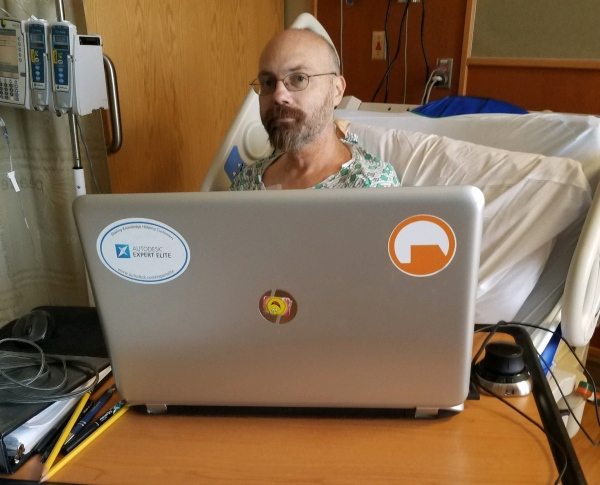
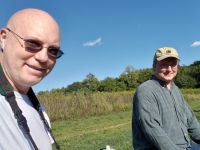
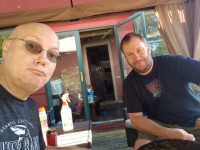
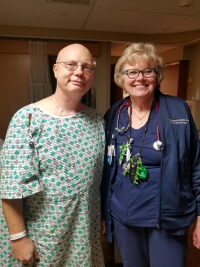
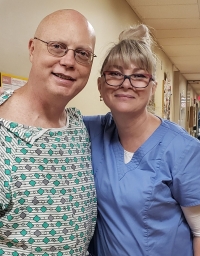
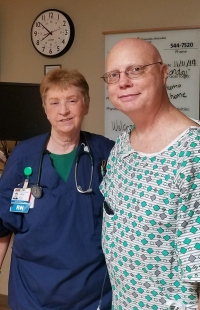
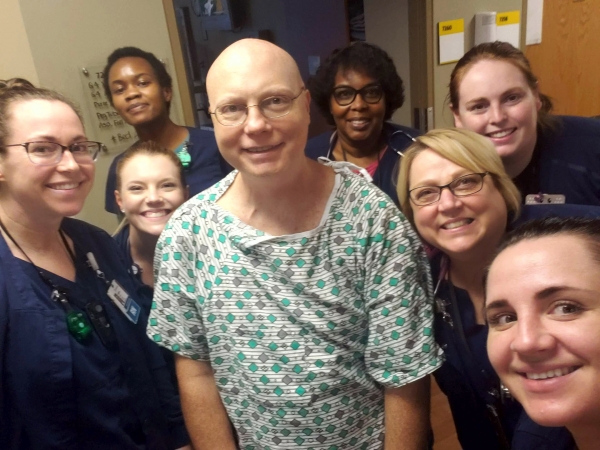
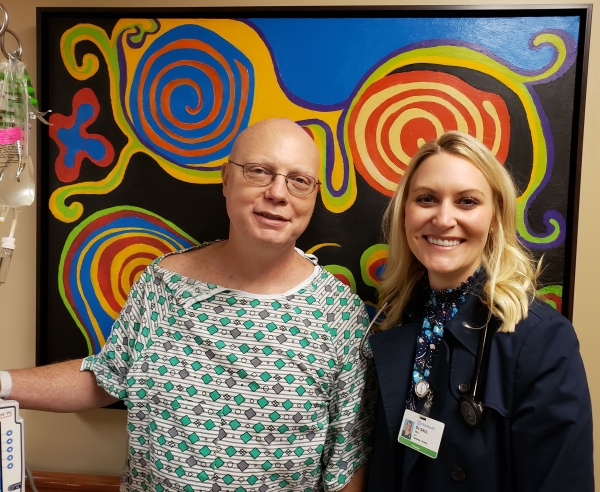

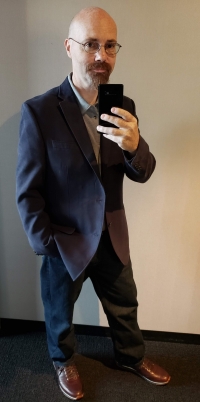
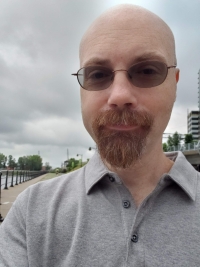
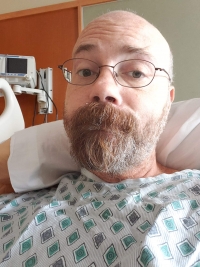
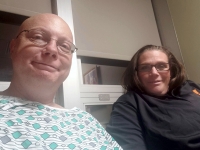
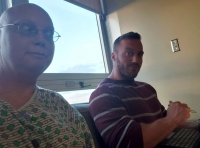
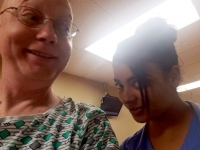
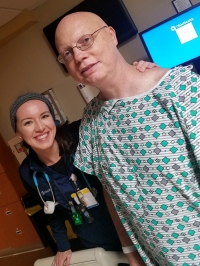
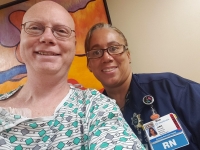
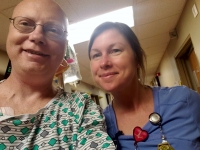
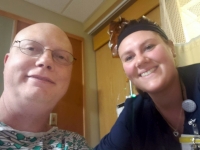
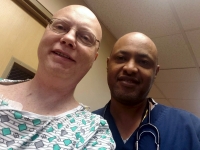
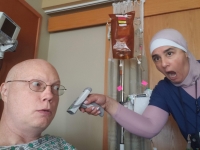
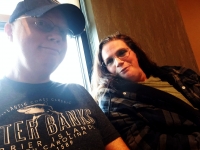
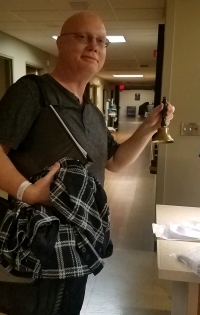




dj K.I.R.
Nov 29, 2020
Reply
Kevin Cunningham
Feb 27, 2020
Reply
Shawn Olson
Feb 29, 2020
Reply
Michael
Dec 29, 2019
Reply
Shawn Olson
Dec 30, 2019
Reply
Jonathan Hart
Dec 17, 2019
Reply
Shawn Olson
Dec 17, 2019
Reply